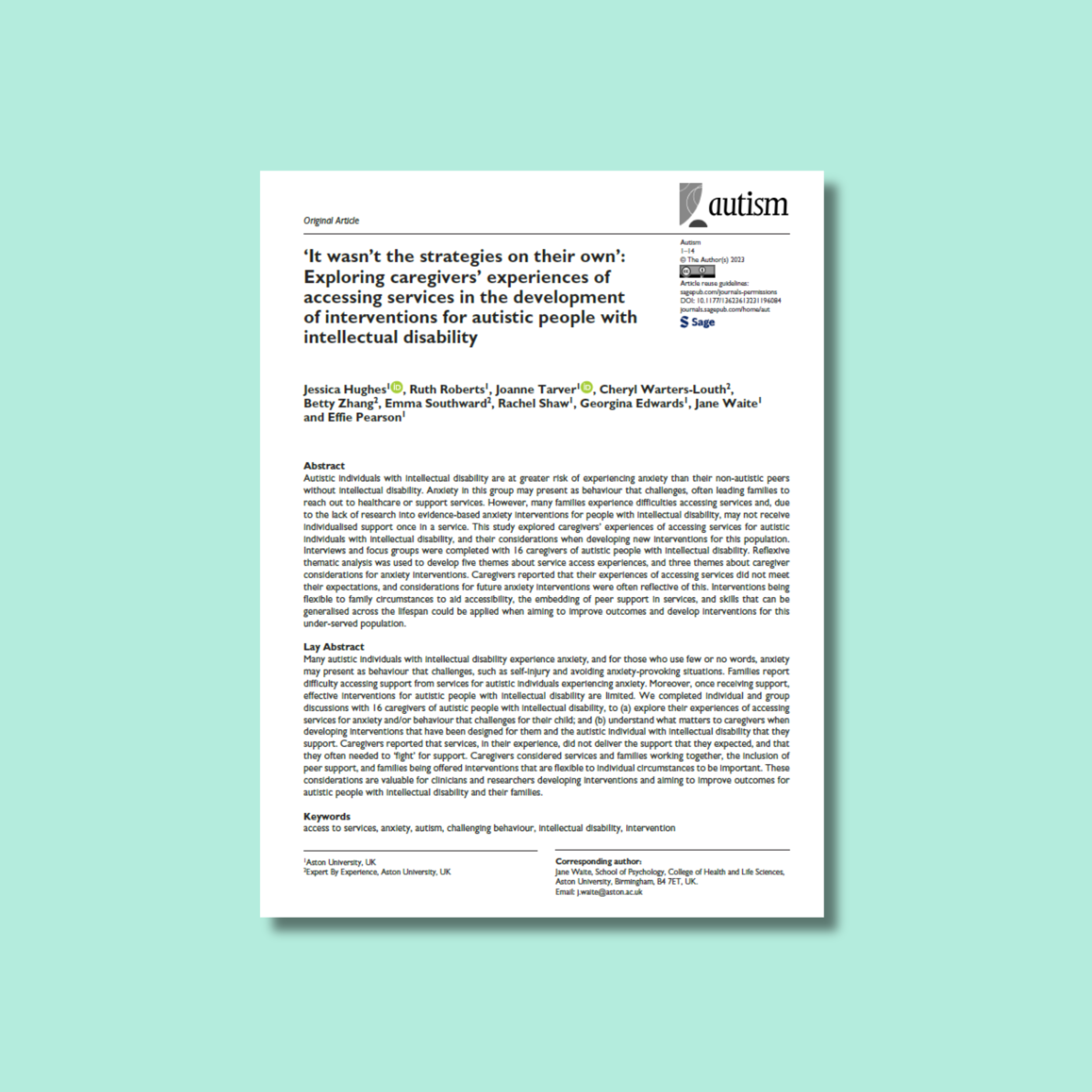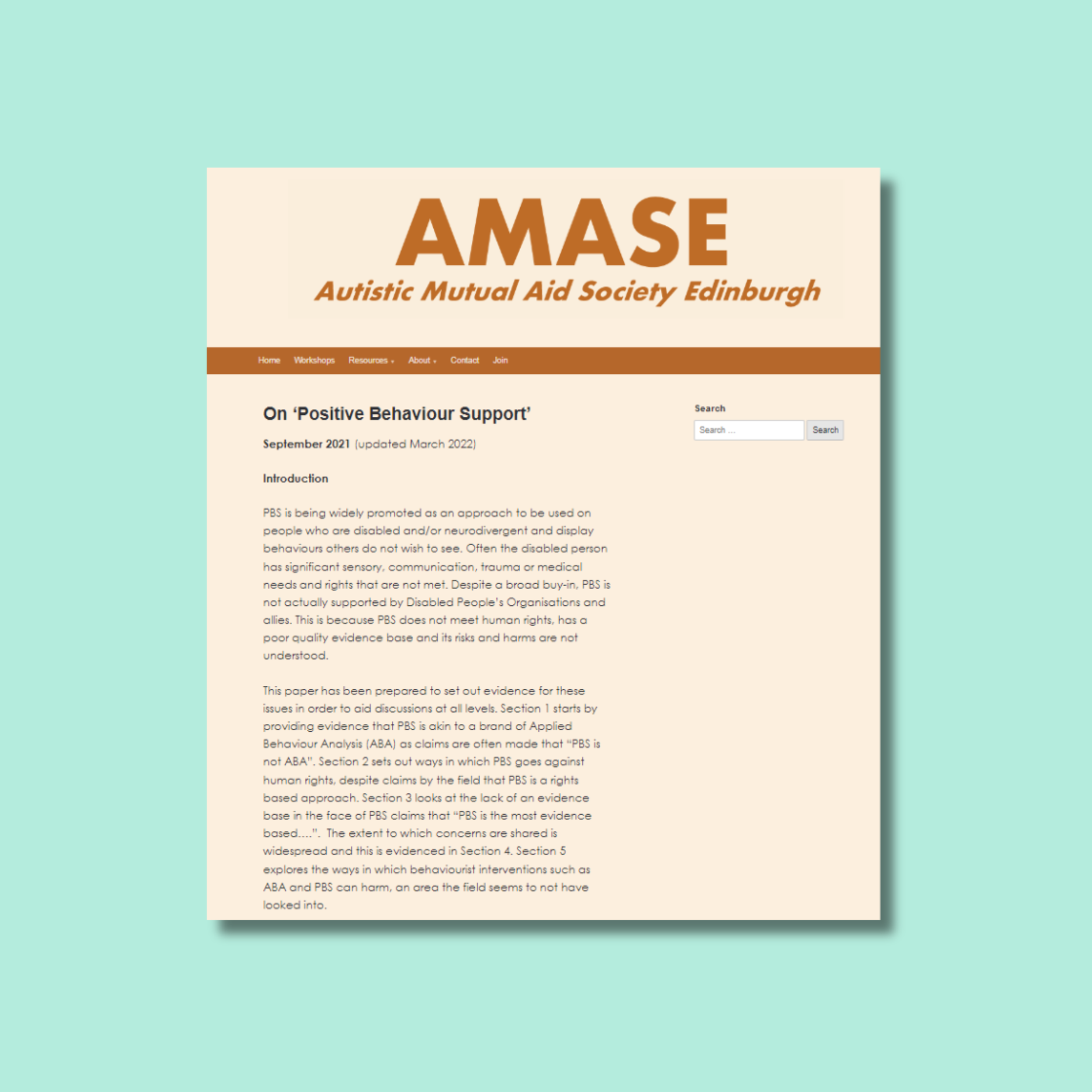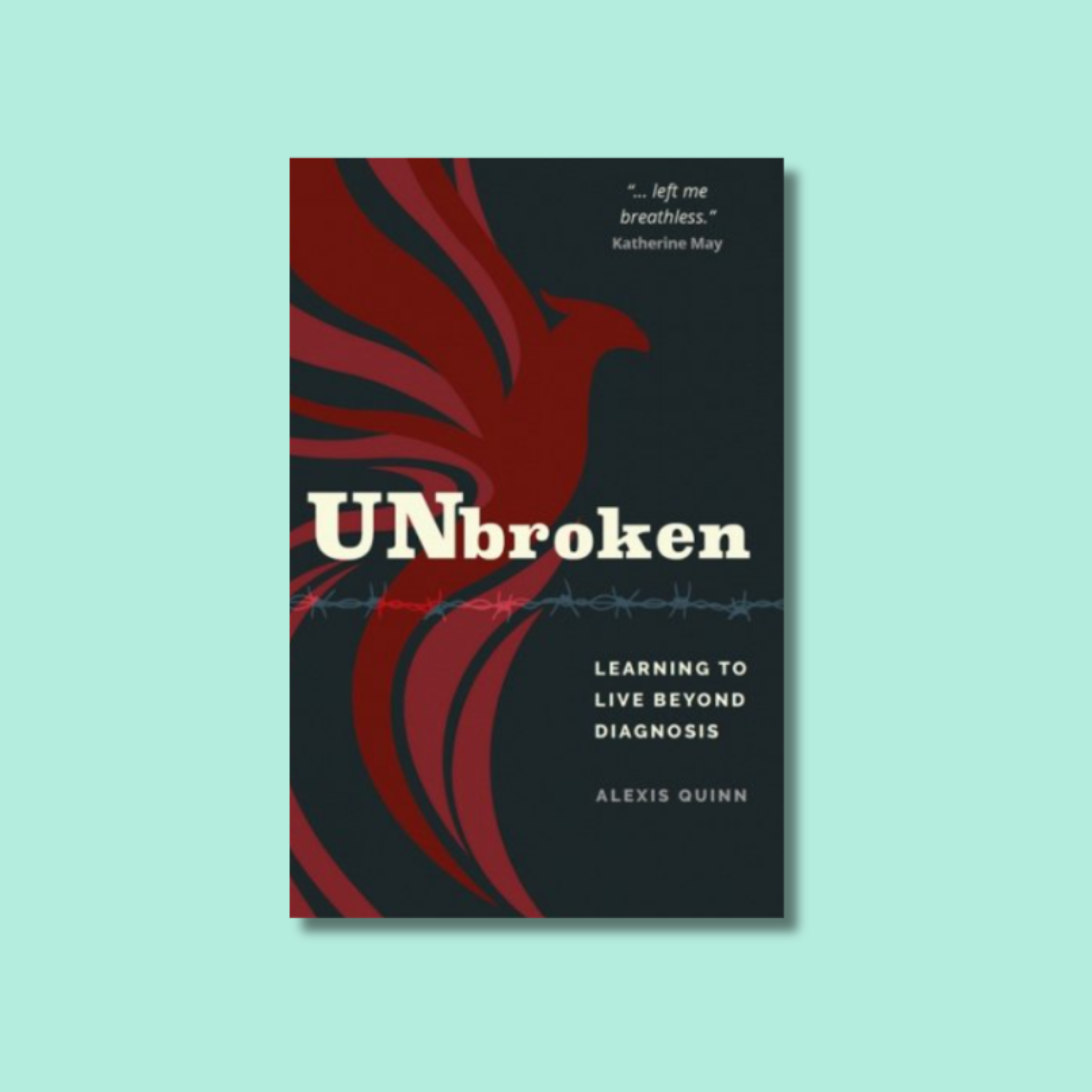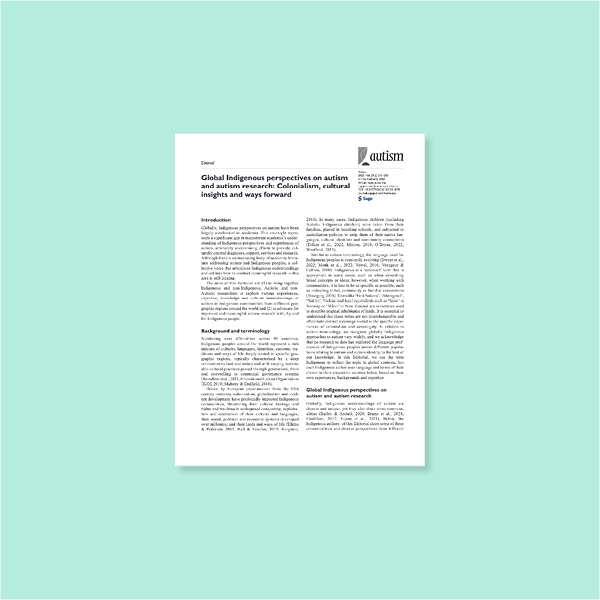 Image 1 of 1
Image 1 of 1


‘It Wasn’t the Strategies on Their Own’: Exploring Caregivers’ Experiences of Accessing Services in the Development of Interventions for Autistic People with Intellectual Disability
Hughes, Roberts, Tarver, Warters-Louth, Zhang, Southward, Shaw, Edwards, Waite and Pearson (2023)
Many autistic people with intellectual disability experience anxiety, which can show up as self-injury or avoidance, especially for those who speak little or not at all. Caregivers often struggle to get effective support from services and feel they must fight for help. They say it's important for researchers and services to work with families, offer peer support, and provide flexible, personalised interventions.
Disclaimer: discusses self-harm.
Hughes, Roberts, Tarver, Warters-Louth, Zhang, Southward, Shaw, Edwards, Waite and Pearson (2023)
Many autistic people with intellectual disability experience anxiety, which can show up as self-injury or avoidance, especially for those who speak little or not at all. Caregivers often struggle to get effective support from services and feel they must fight for help. They say it's important for researchers and services to work with families, offer peer support, and provide flexible, personalised interventions.
Disclaimer: discusses self-harm.






